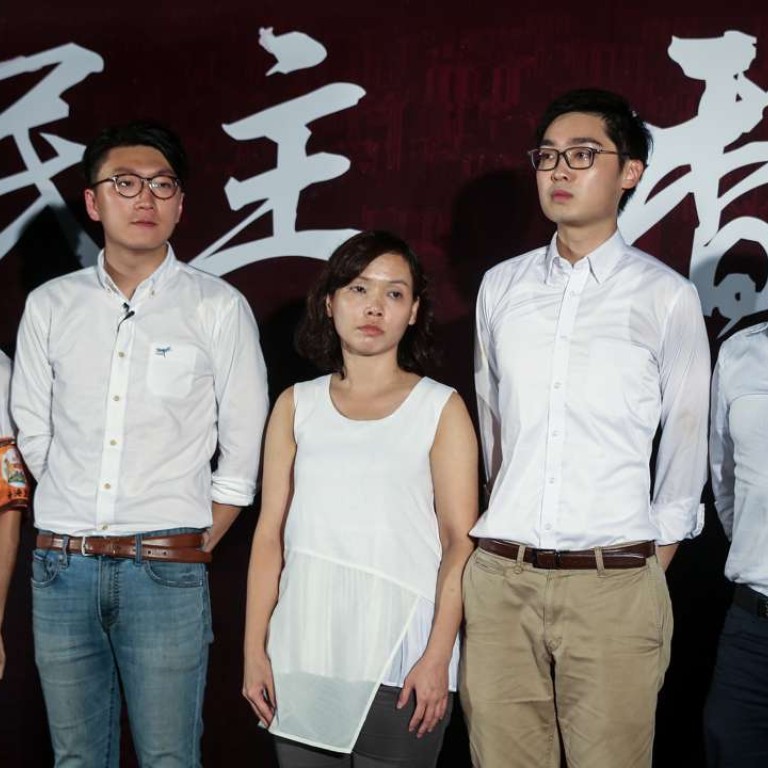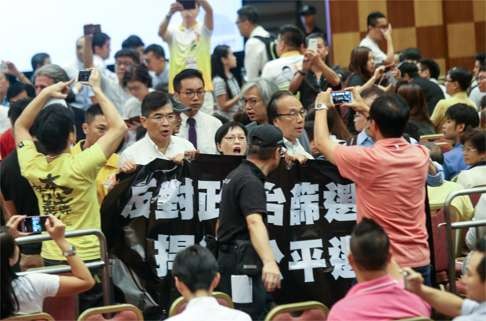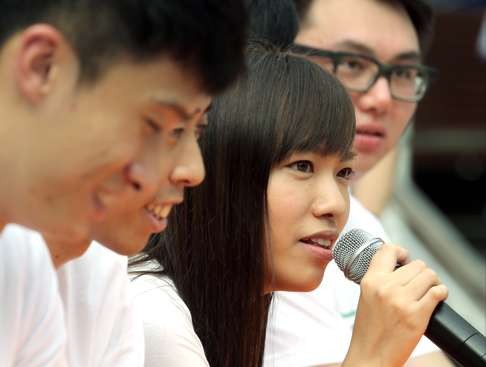
Hong Kong’s electoral commission is losing credibility through inconsistent handling of localist candidates
Ho Lok Sang says the commission must restore its reputation of being fair and free from political influence, by collecting indisputable evidence to back its decisions
The inconsistent way in which the Legislative Council election rules have been administered is disappointing. I lauded the requirement for aspiring candidates to reaffirm their acceptance of key clauses in the Basic Law. This is potentially an effective way to screen out candidates who promote Hong Kong’s independence, which is a legitimate responsibility of the Electoral Affairs Commission. Yet the requirement was not consistently upheld, thus hurting the commission’s credibility. It must revive that credibility by vigorously and consistently exercising its mandate from now on.
Electoral Commission accused of ‘political screening’ and double standards in approval process for leaflets by Legco candidates
According to the official notification about the 2016 Legco election, candidates need to submit a “duly signed confirmation form in addition to the nomination form to the relevant returning officer”.
This new requirement is entirely legitimate, given that under the Legislative Council Ordinance, a candidate must declare that he/she will uphold the Basic Law and pledge allegiance to the SAR. Accordingly, the commission has a mandate to ask every candidate to reaffirm the following key Basic Law clauses, which provide the foundation of the Hong Kong special administrative region itself:
● Article 1: The Hong Kong SAR is an inalienable part of the People’s Republic of China.
● Article 12: The Hong Kong SAR shall be a local administrative region of the People’s Republic of China, which shall enjoy a high degree of autonomy and come directly under the central government.
● Article 159(4): No amendment to this law shall contravene the established basic policies of the People’s Republic of China regarding Hong Kong.
As things have turned out, the “requirement” was not taken to be a requirement. Many who did not reaffirm their understanding and espousal of these clauses still had their candidacy validated. This could still be justified if the commission’s returning officer had reason to believe the candidate was sincere in making the declaration of allegiance and pledge to uphold the Basic Law, as laid out in the nomination form. This may apply, for example, to legislators seeking re-election, who have a record of service. But failing to enforce what was portrayed as a requirement hurts the credibility of the commission.

Protests shut down electoral commission briefing as Hong Kong Indigenous’ Edward Leung disqualified from Legco elections
One might then think that while the reaffirmation statement is not a necessary condition for admission as a valid candidate, it may be a sufficient condition. But this isn’t the case either. Edward Leung Tin-kei of Hong Kong Indigenous signed the statement and, in an email to the returning officer, confirmed he understood the key Basic Law clauses and would uphold them. Yet his candidacy was rejected.
The government says the returning officer has the right to decide if someone is to be disqualified for failing to uphold the Basic Law in practice. This means that signing the reaffirmation statement is neither necessary nor sufficient proof of intent to uphold the Basic Law. It is just one of many factors that the returning officer may consider in deciding whether the aspiring candidate is sincere.
Giving the returning officer the responsibility to decide this has invited challenges because it requires a judgment call. The commission must now restore credibility and demonstrate its integrity by collecting indisputable evidence that its decisions are sound and by consistently nullifying the candidacy of all those who openly advocate Hong Kong independence.

Hong Kong localists remain defiant at ‘historic’ rally
It is regrettable that the commission, an administrative unit, has been given a judgmental role. It would have been preferable for the returning officer to tentatively accept the reaffirmation as genuine – ignoring past activities of the nominee, but overturning the candidacy on unmistakable evidence of violation of the declaration, by applying to a court to overturn the candidacy if such violation is suspected.
The public is watching the commission’s actions, as some confirmed candidates have announced they will continue to fight for independence. The commission must act consistently and adhere to established standards and procedures, to uphold its reputation as being fair and free from political influence.
Ho Lok Sang is adjunct professor and consultant at Pan Sutong Shanghai-Hong Kong Economic Policy Research Centre, Lingnan University

